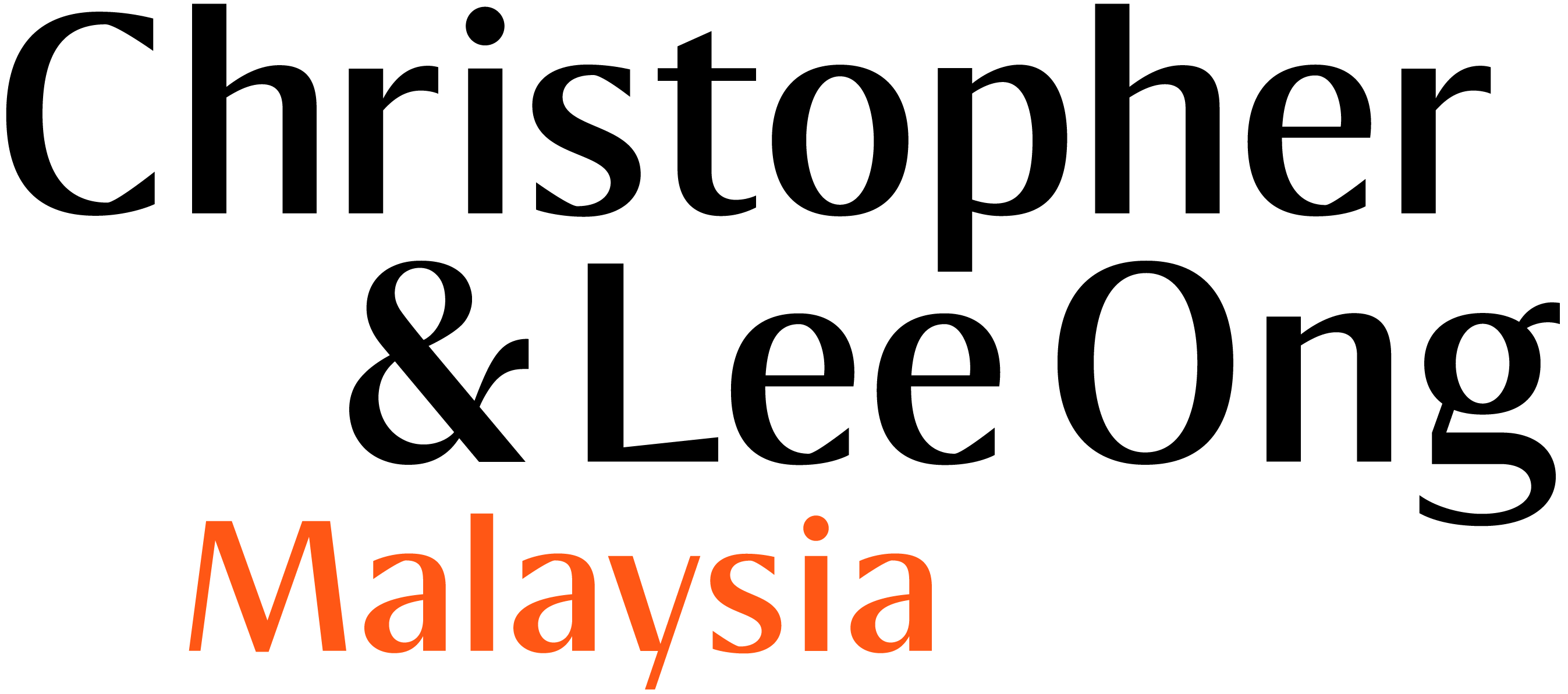Introduction
On 7 January 2025, Singapore and Malaysia signed and exchanged an Agreement (“JS-SEZ Agreement“) on the Johor-Singapore Special Economic Zone (“JS-SEZ“). This follows the signing of the Memorandum of Understanding (“MOU“) on the JS-SEZ on 11 January 2024. Some key points to note include:
- “JS-SEZ Area“: Under the JS-SEZ Agreement, the “JS-SEZ Area” is defined precisely to include nine designated flagship areas, which will cover the Iskandar Development Region and Pengerang.
- Key areas of cooperation: Under the JS-SEZ Agreement, Singapore and Malaysia agree to leverage on the complementary value propositions of both sides and to cooperate in the following key areas:
- Economic cooperation: Through: (i) promoting and facilitating investments in 11 sectors, including manufacturing, logistics, food security, tourism, energy, the digital economy, the green economy, financial services, business services, education, and health; (ii) promoting and facilitating the expansion of a cumulative 100 projects over ten years, that will serve to create economic growth and jobs; (iii) facilitating the development of renewable energy projects, to accelerate renewable energy trading between both countries; and (iv) establishing the Invest Malaysia Facilitation Centre – Johor (“IMFC-J“) as a one-stop shop that will streamline and expedite the process for companies looking to establish in or expand to the JS-SEZ.
- Movement of people and goods: Through enhancing existing visas / passes, customs and immigration clearance, and local transport links in both countries.
- Talent development: Through skills training and education programmes, so as to attract talents that are aligned with industry needs, to work in the JS-SEZ.
- Tax and other incentives: A suite of tax and other incentives has also been announced, to drive high-value investments into Johor, including: (i) a special corporate tax rate for qualifying activities; (ii) additional tailor-made incentives for businesses operating in certain flagship areas; (iii) a special tax rate for knowledge workers; and (iv) lower entertainment duties.
This Update provides more information on the JS-SEZ Agreement, the initiatives and incentives available for businesses and investors looking to establish in or expand to the JS-SEZ, some remaining questions requiring clarification, and the support available from our legal teams in this regard.
Background
Singapore and Malaysia share strong economic ties. For example, in 2023 alone: (i) Malaysia was Singapore’s third largest trading partner, with total bilateral trade amounting to S$123.6 billion; and (ii) Singapore was Malaysia’s second largest trading partner, and its largest source of foreign direct investment (“FDI“), contributing RM43.7 billion or 23.2% of Malaysia’s total FDI.
Within Malaysia itself, Johor has become a key investment destination for Singapore companies due to stronger economic partnerships and improved connectivity. For example, in 2023, Johor recorded RM31 billion in FDI, with Singapore and the United States of America as its main investors in the manufacturing sector.
The JS-SEZ Agreement aims to strengthen the value proposition of Singapore and Johor to compete for global investments together, and to enable both countries to tap on their complementary value propositions, by focusing on the following areas:
- Economic cooperation: Strengthening economic cooperation, enhancing economic growth, making the business ecosystem within the region more robust, and improving the ease of doing business.
- Movement of people and goods: Improving cross-border goods connectivity, and facilitating the freer movement of people, between Singapore and Johor. Businesses and investors can benefit from this enhanced connectivity for goods and people, by expanding their business overseas and twinning business operations, tapping on the complementary strengths that Singapore and Johor offer.
- Talent development: Enhancing innovation, productivity, and talent development, so as to allow the JS-SEZ to better compete for global investments and to create jobs.
For an overview of the JS-SEZ, the key initiatives being proposed to support its development, its key anticipated benefits, and its key focus sectors, please see our Legal Update titled “The New Southeast Asia Economic Hub: Johor-Singapore Special Economic Zone (JS-SEZ)” (available at www.rajahtannasia.com).
Key Details of the JS-SEZ Agreement
Defining the “JS-SEZ Area“
Under the JS-SEZ Agreement, the “JS-SEZ Area” is defined precisely and will cover the Iskandar Development Region and Pengerang.
This will include industrial parks located within the region and nine designated flagship areas with prioritised sectors. A map of the area can be found here (available on the Iskandar Regional Development Authority website):
- Flagship A (Johor Bahru Waterfront).
- Flagship B (Iskandar Puteri).
- Flagship C (Tanjung Pelepas).
- Flagship D (Tanjung Langsat – Kong Kong).
- Flagship E (Senai – Skudai).
- Flagship F (Kulai – Sedenak).
- Flagship G (Desaru – Penawar).
- Flagship H (Pengerang Integrated Petroleum Complex).
- Flagship I (Forest City Special Financial Zone).
Key areas of cooperation
Under the JS-SEZ Agreement, Singapore and Malaysia agree to leverage on the complementary value propositions of both sides and to cooperate in the following key areas:
- Economic cooperation:
- Investments in 11 sectors: Promoting and facilitating investments in 11 economic sectors, which will come from third-party countries as well as Singapore companies expanding into the JS-SEZ, and which will: (i) enhance economic complexity; (ii) promote and advance digital vibrancy and technology adoption; and (iii) achieve net-zero aspirations in the JS-SEZ. These sectors include manufacturing, logistics, food security, tourism, energy, the digital economy, the green economy, financial services, business services, education, and health.
- Projects that create growth and jobs: Promoting and facilitating the expansion of: (i) 50 projects within the first five years; and (ii) a cumulative 100 projects within the first ten years, that will serve to bring growth to both countries, with the intent of creating 20,000 skilled job opportunities in the zone.
- Renewable energy projects: Facilitating the development of renewable energy projects, to accelerate renewable energy trading between both countries.
- Free zones and manufacturing warehouses: Considering the development of new areas for free zones, and facilitating the application for licensed manufacturing warehouses, in the “JS-SEZ Area“.
- IMFC-J: Malaysia will establish the IMFC-J, a one-stop shop that will streamline and expedite the process for companies looking to establish in or expand to the JS-SEZ. This will assist to facilitate investments and businesses in the JS-SEZ.
- Movement of people and goods
- Existing visas / passes: Enhancing Malaysia’s existing visas / passes, to encourage vibrancy in the JS-SEZ, such as Malaysia’s DE Rantau Nomad Pass (i.e. a type of Professional Visit Pass, which is designed to allow qualified foreign digital nomads to travel and work in Malaysia for up to 12 months, and which can be renewed for another one year).
- Customs and immigration clearance: Enhancing the movement of people and goods in phases, by: (i) increasing clearance capacity; (ii) implementing automated immigration lanes; and (iii) implementing paperless clearance for goods. By way of update, since the implementation of the passport-free quick response (QR) code clearance at Singapore’s land checkpoints with Malaysia in March 2024, congestion has reduced and the flow of traffic on the Johor-Singapore Causeway has eased. Further, Singapore has also implemented a new procedure to help businesses save costs and improve efficiency – from 1 January 2025, traders only need to apply for a single transshipment permit with Singapore Customs for land intermodal transshipments, instead of two separate permits as previously required.
- Local transport links: Working on developing seamless connectivity, by strengthening local transport links in both countries, to support the JS-SEZ.
- Second Link for commercial vehicles: Studying the feasibility of encouraging more commercial vehicles to use the Second Link between Johor and Singapore.
- Customs data sharing: Exploring potential data sharing to enhance customs processes in facilitating the cross-border movement of goods, subject to requirements and regulations of both countries.
- Talent development: Attracting talents aligned with industry needs to work in the JS-SEZ, by enhancing industry-ready skills training and education programmes, and pursuing these initiatives in collaboration with the Johor Talent Development Council (“JTDC“) and other relevant institutions. By way of update, partnerships have already been established to strengthen cooperation in technical and vocational education and training (TVET) initiatives to meet industry demands, including: (i) the MOU between Singapore Polytechnic and the Federation of Malaysian Manufacturers (FMM); (ii) the MOU between Singapore’s ITE Education Services (ITEES) and the Johor Skills Development Centre (JSDC); and (iii) the signing of a Cooperation Note on Talent Development between Republic Polytechnic and the JTDC.
Initiatives and Incentives to Support the JS-SEZ
Tax incentives
- Tax incentives: On 8 January 2025, the Ministry of Finance Malaysia and the Johor State Government announced a tax incentive package for the JS-SEZ, designed to drive high-value investments into Johor, and tailored to meet the evolving needs of global and domestic investors. Effective 1 January 2025, investors in the JS-SEZ are eligible for a suite of incentives, including:
- Special corporate tax rate: Companies undertaking new investments in qualifying manufacturing and services activities, will benefit from a special corporate tax rate of 5% for up to 15 years. These qualifying activities include: (i) Artificial Intelligence and Quantum Computing Supply Chain; (ii) Medical Devices; (iii) Aerospace Manufacturing; and (iv) Global Services Hub, which represent high growth and high value-added activities within the JS-SEZ.
- Flagship development focus: Additional tailor-made incentives will be allocated to businesses operating in certain flagship areas in the JS-SEZ.
- Special tax rate for knowledge workers: A special tax rate of 15% for ten years will be available for eligible knowledge workers working in the JS-SEZ.
- Lower entertainment duties: Effective from 1 January 2025, the Johor State Government has also agreed to introduce lower entertainment duties fixed at 5%. This is intended to encourage investments in theme parks in Johor and to attract more domestic and international tourists.
Other initiatives and incentives
- Market readiness programmes and grants: There are existing incentives for Singapore businesses to tap on for the purposes of the JS-SEZ (e.g. market readiness programmes and grants), in order to expand and have some operations in Johor that will synergise with their operations in Singapore.
- Market access for FIs: Singapore and Malaysia will explore enhancing market access for financial institutions (FIs), subject to laws, rules, regulations, and requirements in both countries.
- Iskandar Malaysia JMCIM platform: At the 11th Malaysia-Singapore Leaders’ Retreat on 7 January 2025, the leaders of both countries reaffirmed ongoing discussions to refresh the Joint Ministerial Committee for Iskandar Malaysia (“JMCIM“) platform, to (among others) better support the ambitions and development of the JS-SEZ.
Conclusion
While the JS-SEZ Agreement presents exciting opportunities for both Singapore and Malaysia to boost economic cooperation and to attract investments in the region, further details on the applicable legal and regulatory frameworks governing the JS-SEZ in both countries would certainly be welcome, including on the following matters:
- Tax: The tax incentives and benefits available for JS-SEZ investors. For example, while further details on the tax incentives and the flagship zones are set to be announced in due course, some immediate questions arise, including how the 5% special corporate tax rate is expected be implemented and how that is anticipated to interact with the current Malaysia Global Minimum Tax (“GMT“) of 15%. For instance, if the GMT of 15% applies to JS-SEZ investors, applicable corporations (falling within the GMT framework) may need to seek appropriate tax advice on whether top-up tax is required to be paid, either in Malaysia or any other relevant jurisdiction(s).
- Employment: The labour laws and regulations applicable to the JS-SEZ, which is likely to be a concern for human resources companies enabling talent transfers across borders.
- Sustainability: The environmental regulations, sustainability requirements and renewable energy arrangements that would be relevant / applicable to the JS-SEZ.
- IP, privacy and data: The intellectual property (IP) protections, data privacy considerations and cross-border data transfer arrangements that would be relevant / applicable to the JS-SEZ, which are likely to be concerns for many parties, including data centre operators.
We invite you to reach out to us if you have any queries or wish to pursue opportunities in the above areas. With our local teams in both countries, we are well placed to advise and support your businesses and investments in leveraging on the JS-SEZ, and in addressing queries on a wide range of topics, including:
- Opportunities: The economic impact and investment opportunities available with the JS-SEZ.
- Cost-benefit: The potential benefits and risks.
- Strategies: Market entry strategies and considerations (including strategies to address various challenges arising in the legal and regulatory frameworks).
- Trade issues: Cross-border trade and logistics considerations.
- Focus sectors: Projects and sectors expected to thrive in the JS-SEZ.
- Case studies: Case studies of successful multinational companies (“MNCs“) operating in similar special economic zones.
- Best practices: Best practices for MNCs in structuring their business operations to leverage the benefits of the JS-SEZ.
- Solutions: Potential challenges and practical solutions for MNCs with respect to the JS-SEZ.
For more information, please see:
- Ministry of Trade and Industry Singapore’s press release titled “Agreement between Singapore and Malaysia on the Johor-Singapore Special Economic Zone” (available on the Ministry of Trade and Industry Singapore website)
- Ministry of Foreign Affairs Singapore’s press release titled “Joint Statement by PM Lawrence Wong and PM Dato’ Seri Anwar Ibrahim at the 11th Malaysia-Singapore Leaders’ Retreat” (available on the Ministry of Foreign Affairs Singapore website)
- Ministry of Foreign Affairs Malaysia’s press release titled “Joint Statement by Prime Minister Dato’ Seri Anwar Ibrahim and Prime Minister Lawrence Wong at the 11th Malaysia-Singapore Leaders’ Retreat in Putrajaya on 7 January 2025” (available on the Ministry of Foreign Affairs Malaysia website)
- Prime Minister’s Office Singapore’s press release titled “Remarks by Prime Minister and Minister for Finance Lawrence Wong at the Q&A segment of the 11th Malaysia-Singapore Leaders’ Retreat joint press conference in Malaysia on 7 January 2025” (available on the Prime Minister’s Office Singapore website)
- Prime Minister’s Office of Malaysia’s press release titled “Verbatim Joint Press Conference YAB Prime Minister during Official Visit of His Excellency Lawrence Wong, Prime Minister of the Republic of Singapore” (available on the Prime Minister’s Office of Malaysia website)
- Ministry of Finance Malaysia and Johor State Government’s joint press release titled “JS-SEZ Incentive Package To Drive High-Value Investments Into Johor” (available on the Ministry of Finance Malaysia website)
- Media Digital Johor’s press release titled “Insentif JS-SEZ Bawa Pelaburan Bernilai Tinggi ke Johor” (available on the Media Digital Johor website)
- Iskandar Regional Development Authority’s webpage titled “Why Invest in JS-SEZ” (available on the Iskandar Regional Development Authority website)
Disclaimer
Rajah & Tann Asia is a network of member firms with local legal practices in Cambodia, Indonesia, Lao PDR, Malaysia, Myanmar, the Philippines, Singapore, Thailand and Vietnam. Our Asian network also includes our regional office in China as well as regional desks focused on Brunei, Japan and South Asia. Member firms are independently constituted and regulated in accordance with relevant local requirements.
The contents of this publication are owned by Rajah & Tann Asia together with each of its member firms and are subject to all relevant protection (including but not limited to copyright protection) under the laws of each of the countries where the member firm operates and, through international treaties, other countries. No part of this publication may be reproduced, licensed, sold, published, transmitted, modified, adapted, publicly displayed, broadcast (including storage in any medium by electronic means whether or not transiently for any purpose save as permitted herein) without the prior written permission of Rajah & Tann Asia or its respective member firms.
Please note also that whilst the information in this publication is correct to the best of our knowledge and belief at the time of writing, it is only intended to provide a general guide to the subject matter and should not be treated as legal advice or a substitute for specific professional advice for any particular course of action as such information may not suit your specific business and operational requirements. You should seek legal advice for your specific situation. In addition, the information in this publication does not create any relationship, whether legally binding or otherwise. Rajah & Tann Asia and its member firms do not accept, and fully disclaim, responsibility for any loss or damage which may result from accessing or relying on the information in this publication.











